- About
- Admissions
- Study at AUS
- Prospective Students
- Bachelor's Degrees
- Master's Degrees
- Doctoral Degrees
- Admission Publications
- International Students
- Contact Admissions
- Grants and Scholarships
- Sponsorship Liaison Services
- Testing Center
- New Student Guide
- File Completion
- New Student Orientation
- Payment Guide
- Executive Education
- Students with Disabilities
- Academics
- Life at AUS
- Research
- Contact Us
- Apply Now
- .
Overview
EPECS 2024

The Department of Electrical Engineering at American University of Sharjah is proud to host the Seventh International Conference on Electric Power and Energy Conversion Systems (EPECS 2024) from November 12-14, 2024, in Sharjah, UAE.
The purpose of the Seventh International Conference on Electric Power and Energy Conversion Systems is to bring together researchers, engineers and practitioners from all over the world who are interested in the advancement of power systems, energy conversion, power electronics and electric drives.
The objective of the conference is to provide scientific and professional interactions to advance the field of electric energy in the UAE and Gulf region. Recent development in complex systems such as distributed power systems, electric vehicles and traction systems, and renewable energy systems are highly encouraged.
The conference will feature both oral and poster presentations. Invited speakers will highlight future trends in areas relevant to the conference. An exhibition area, with technical facilities, will be available.
Important Deadlines
Full Paper Submission August 31, 2024
Author's Notification September 15, 2024
Final Paper Submission and Registration October 11, 2024
To download the Call for Papers, please click here.
Honorary Chair
- Fadi Aloul, Dean of Engineering, AUS, UAE
General Co-Chairs
- Rached Dhaouadi, AUS, UAE
- Ahmed Osman, AUS, UAE
Technical Program Co-Chairs
- Aydin Yesildirek, YTU, Turkey
- Ayman El-Hag, UW, CA
- Habib-ur Rehman, AUS, UAE
- Mostafa Shaban, AUS, UAE
Technical Program Committee
- Abdellah Kouzou, DU, Algeria
- Ali R. Boynuegri, YTU, Turkey
- Ammar Hasan, AUS, UAE
- Burak Tekgun, AGU, Turkey
- Dogga Raveendhra, NITA, India
- Ghulam Amjad Hussain, UD, UAE
- Hany Farag, YU, CA
- Hatem Faiz Sindi, KAU, KSA
- Hatem Zein El din, KU, UAE
- Ehab Fahmy El-Sadaany, KU, UAE
- Khaled Nouri, ENICarthage, Tunisia
- Mohammad R. Zolghadri, SUT, Iran
- Refat Ghunem, NRC, CA
- Shayok Mukhopadhyay, UNH, USA
- Ugur S. Selamogullar, YTU, Turkey
- Yavuz Ates, YTU, Turkey
E-Media & Publication Committee
- Wasil El Tahir, AUS, UAE
- Ali R. Boynuegri, YTU, Turkey
Students Competition Committee
-
Habib-ur Rehman, AUS, UAE
-
Kashif Bangash, AUS, UAE
Treasurer
- Shena Rosa, AUS, UAE
International Advisory Board
- Edward Cherney, UW, Canada
- Frede Blaabjerg, AU, Denmark
- Gian Carlo Montanari, UB, Italy
- Issa Batarseh, UCF, USA
- M.A. Rahman, MUN, Canada
- Malik El-Buluk, UA, USA
- M.H. Rashid, UWF, USA
- M.P. Kazmierkowski, WUT, Poland
- Om Malik, UC, Canada
- Phil Krein, UI, USA
- Ralph Kennel, TUM, Germany
- Rik De Doncker, RWTH Aachen, Germany
- Saifur Rahman, VT, USA
- Stanislaw M. Gubanski, CUT, Sweden
- Tom Habetler, GIT, USA
- Tore Undeland, NTNU, Norway
- Ozan ERDINÇ YTU, Turkey
Keynote Speakers
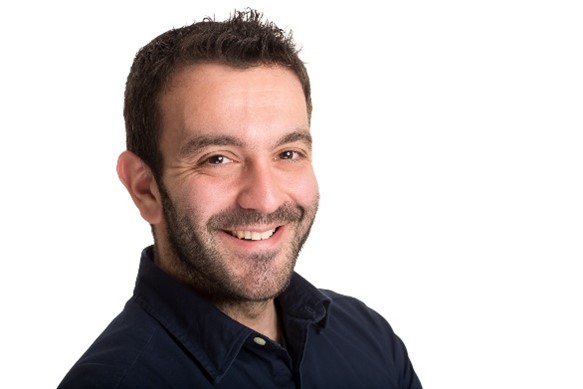
Dr. Dimosthenis Peftitsis
Professor, Department of Electric Power Engineering
NTNU, Norwegian University of Science and Technology
Trondheim, Norway
Presentation Title: WBG power semiconductors enabling high-performance power electronics: challenges and opportunities
Abstract: With the advent of Wide Bandgap (WBG) power semiconductors technology, such as Silicon Carbide (SiC) devices, a new era in designing high-performance power electronics has been initiated. Direct benefits in terms of improved efficiencies and minimized cost are foreseen in applications such as grid-integration of renewable energy sources and electrification of the transportation sector. However, replacing the existing Silicon-based power semiconductors with SiC technology imposes the need for revisiting the current thinking in converters’ hardware design and operation. This presentation will shed some light on challenges and opportunities of utilizing SiC MOSFETs in high-performance power electronic designs. In particular, the focus will be on SiC MOSFETs integration approaches on novel circuit layouts, gate driving technology and active thermal control for enhanced reliability.
Biography: Dimosthenis Peftitsis (Senior Member, IEEE) received the Diploma degree (Hons.) in electrical and computer engineering from Democritus University of Thrace. Xanthi, Greece, in 2008, and the Ph.D. degree from the KTH Royal Institute of Technology, Stockholm, Sweden, in 2013. In his final year of studies, he spent six months in ABB Corporate Research, Västerås, Sweden, writing his thesis. From 2013 to 2014, he was a Postdoctoral Researcher involved in the research on SiC converters with the Department of Electrical Energy Conversion, KTH Royal Institute of Technology, and from 2014 to 2016, he worked as a Postdoctoral Fellow with the Lab for High Power Electronics Systems, ETH Zurich, Zurich, Switzerland, where he was involved in dc-breakers for multiterminal HVDC systems. He is Professor of Power Electronics in the Department of Electric Energy with the Norwegian University of Science and Technology (NTNU), Trondheim, Norway, where he has been a Faculty Member since May 2016.
He has authored or co-authored more than 100 journal and conference papers, and he is the coauthor of one book chapter and the presenter of 7 conference tutorials. His research interests lie in the area of power converters design using WBG devices (e.g., SiC and GaN) including adaptive drive circuits, high-performance device models, dc-breaker design for MV and HVDC systems, as well as reliability enhancement of high-power semiconductor devices, including reliability of SiC power switches. Professor Peftitsis is Associate Editor in the IEEE Transactions on Power Electronics and IET Power Electronics, and he was a Member of the Outstanding Academic Fellows Programme at NTNU in 2019-2023. Since 2018 he also serves as a member of the EPE International Scientific Committee. He is currently the Chairman on the Norway IEEE joint Power Electronics Society/Industry Applications Society/Industrial Electronics Society Chapter.
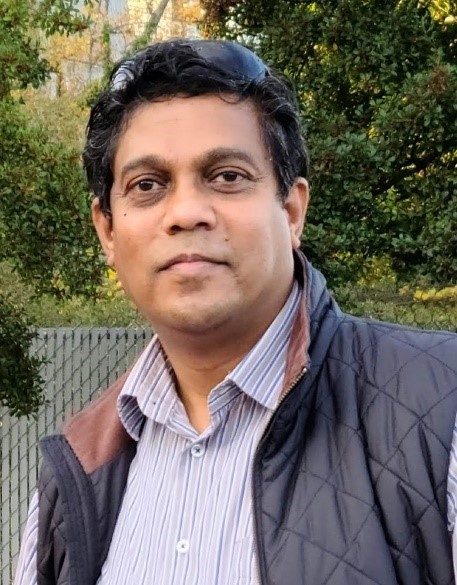
Dr. G. Kumar Venayagamoorthy
Duke Energy Distinguished Professor of Power Engineering
Professor of the Holcombe Department of Electrical and Computer Engineering
Director: Real-Time Power & Intelligent Systems Laboratory
Vice-President for Industry Relations – International Neural Network Society
IEEE Press Series Editor for Power and Energy Systems
IEEE CIS/IAS/IES/PES Distinguished Lecturer
College of Engineering, Computing and Applied Sciences,
Clemson University
303D Riggs Hall, Clemson, SC 29634-0901, USA
Presentation Title: Why Artificial Intelligence for Handling Complexity of Modern Power Systems?
Abstract: The modern power system, also referred to as smart grid, is the transformation of the traditional power system to one that is conscious, intelligent, distributed, and flexible. Such an electric power grid architecture can facilitate distributed and secure flow of active (and reactive) power from renewable energy sources and electric vehicles (via vehicle-to-grid). Modern power system operations and control is complex, now dealing with variable power and energy sources, bidirectional power flows, and uncertainty in forecasting and real- time availability of generation, loads, energy storage and other operational resources. Furthermore, modern power system operations will involve flexible loads and energy storage including electric vehicles and human-in-the-loop systems. This talk will address why Artificial Intelligence (AI) is the best technology and needed for handling the complexity of evolving dynamics of modern power systems. Distributed AI technologies for stable, secure, reliable, and efficient operations and control for evolving electric power grids will be discussed with examples.
Biography:
Dr. G. Kumar Venayagamoorthy is the Duke Energy Distinguished Professor of Power Engineering and Professor of Electrical and Computer Engineering at Clemson University since January 2012. Prior to that, he was a Professor of Electrical and Computer Engineering at the Missouri University of Science and Technology (Missouri S&T), Rolla, USA where he was from 2002 to 2011. Dr. Venayagamoorthy is the Founder and Director of the Real-Time Power and Intelligent Systems Laboratory at Clemson University. Dr. Venayagamoorthy received his PhD and MScEng degrees in Electrical Engineering from the University of Natal, Durban, South Africa. He received his BEng degree with a First-Class Honors in Electrical and Electronics Engineering from Abubakar Tafawa Balewa University, Bauchi, Nigeria. He holds an MBA degree in Entrepreneurship and Innovation from Clemson University, USA.
Dr. Venayagamoorthy is a recipient of 2004 U.S. NSF CAREER award and 2007 U.S. Office of the Naval Research Young Investigator Award. He is 2024 U.S. Fulbright Scholar to South Africa. Dr. Venayagamoorthy’s research interests are in the development and innovation of power systems, smart grids and artificial intelligence technologies. Dr. Venayagamoorthy is an inventor of technologies for scalable computational intelligence for complex systems and dynamic stochastic optimal power flow. He has published close to 600 refereed technical articles which are cited over 24,000 times with a h-index of 71 and i10-index of > 300. Dr. Venayagamoorthy has given over 500 invited technical presentations (including over 30 keynotes and plenaries) in over 40 countries to date.
Dr. Venayagamoorthy is the Chair and Founder of the IEEE PES Working Group on Intelligent Control Systems and IEEE Computational Intelligence Society (CIS) Task Force on Smart Grid. He has served/serves as Editor/Associate Editor/Guest Editor of several IEEE Transactions and Elsevier Journals. He is the Editor for the IEEE Press Series on Power and Energy Systems. Dr. Venayagamoorthy is a Fellow of the IEEE, IET (UK), the South African Institute of Electrical Engineers (SAIEE) and Asia-Pacific Artificial Intelligence Association (AAIA), and a Senior Member of the International Neural Network Society (INNS). He is a Distinguished Lecturer of the IEEE CIS, IAS, IES and PES. Dr. Venayagamoorthy is the INNS Vice-President for Industry Relations and a Member of its Board of Governors.
The registration fees for the Seventh International Conference on Electric Power and Energy Conversion Systems (EPECS 2024) are as follows:
|
Registration Type |
Early Registration |
Late Registration |
|
IEEE Member |
US$ 400 |
US$ 500 |
|
Non Member |
US$ 500 |
US$ 600 |
| Student | US$ 250 | US$ 300 |
| Delegate | US$ 250 | US$ 300 |
| Additional Paper | US$ 250 | US$ 300 |
| Extra pages (more than 6 pages) | US$ 50/page | US$ 50/page |
| Additional Banquet Dinner Ticket | US$ 50 | US$ 75 |
Authors are encouraged to take advantage of the early registration rates and complete their paper registrations by September 15, 2024.
Standard registration covers:
(a) admission to all technical sessions, (b) daily refreshments/coffee breaks, (c) welcome reception, (d) conference proceedings, and (e) banquet dinner.
Rules for Paper Presentation and Registration
- Registration will be open for authors until October 15, 2024.
- One regular registration covers one paper with a maximum of six pages, including all figures, tables, and references.
- Student registration is for papers with the student listed as the 1st author and as the presenter.
- The additional paper price is only applied for the registered author who is the first author in both papers.
- It is mandatory for at least one author to register at the regular rate even if the paper is presented by a student.
- Accepted papers must be presented at the conference by an author in order for the paper to be published in the final conference proceedings and IEEE Xplore.
To register for the conference use the following link or QR code:
URL: https://go.aus.edu/forms/EPECS24
QR code:

Please submit your papers electronically in PDF format via our online submission system: https://cmt3.research.microsoft.com/EPECS2024.
Ensure your paper is prepared using the two-column IEEE format. Regular papers should not exceed six pages. Extra pages will incur additional charges. More information can be found on the Registration Form, where the payment for these would be made.
All papers must be written in English.
Your paper must be submitted electronically in PDF format. Please use the following MS Word or LaTeX templates for your paper preparation. These templates incorporate the specifications for conference proceedings on an A4 paper size.
Failure to meet the formatting guidelines set by IEEE could result in your paper not being indexed in IEEE Xplore and excluded from the conference proceedings.
Links for paper templates:
Word: https://www.ieee.org/content/dam/ieee-org/ieee/web/org/conferences/conference-template-a4.docx
Overleaf: https://www.overleaf.com/latex/templates/ieee-bare-demo-template-for-conferences/ypypvwjmvtdf
Latex:
- template https://www.ieee.org/content/dam/ieee-org/ieee/web/org/pubs/conference-latex-template_10-17-19.zip
- Bibliography https://www.ieee.org/content/dam/ieee-org/ieee/web/org/conferences/IEEEtranBST2.zip
- Instructions http://www.ctan.org/tex-archive/macros/latex/contrib/IEEEtran/IEEEtran_HOWTO.pdf
American University of Sharjah (AUS) is organizing the Seventh International Conference on Electric Power and Energy Conversion Systems (EPECS'24) to be held on the AUS campus in Sharjah, United Arab Emirates, November 12-14, 2024.
EPECS'24 brings together international research scientists and eminent members of the electric power and energy industry to discuss the latest developments for the betterment of society. Participants include scientists from universities and industries worldwide.
EPECS'24 is organizing an exhibition during the conference. The exhibition booth will be located in the main building rotunda of AUS and will include a 1m x 2m table along with an electric outlet. The fee for booking an exhibition space is US $1,000.
American University of Sharjah (AUS) is organizing the Seventh International Conference on Electric Power and Energy Conversion Systems (EPECS'24) to be held on the AUS campus in Sharjah, United Arab Emirates, November 12-14, 2024.
EPECS'24 brings together international research scientists and eminent members of the electric power and energy industry to discuss the latest developments for the betterment of society. Participants include scientists from universities and industries worldwide.
During the conference, eminent experts from around the world will present a series of tutorials. These tutorials focus on emerging concepts and technologies with the potential to reshape the future of electric power and energy
systems. Tutorial proposals are solicited from academia and industry, and the EPEC'24 organizing committee evaluates and shortlists proposals that align closely with the conference theme and offer significant benefits to the local community.
- Tutorial 1
-
Tutorial Title:
Applications for Artificial Intelligence and Machine Learning in the Renewable Energy Sector
Abstract:
Artificial intelligence (AI) and machine learning (ML) are important in the renewable energy sector. Day by day installed capacities of renewable energy sources are increased. So their application spans various stages of the energy production and distribution process, leading to more efficient, reliable, and cost-effective energy systems. Renewable energy and Industry 4.0 are converging to redefine the future of power generation processes. The adoption of smart technologies—such as IoT, AI, and predictions is integrating renewable energy sources like solar, wind, hybrid renewable energy systems, etc to create more sustainable, efficient operations. This synergy not only drives cost savings but also aligns with global sustainability goals, positioning businesses as leaders in a rapidly evolving market.
This proposal aims to deliver energy generation prediction with the help of AI and ML algorithms like random forest and linear regression algorithms. The primary objective of this proposal is to generate the raw data for the prediction. The software used for the generation of the data set is the system advisor model (SAM). The simulation analysis is performed and will be demonstrated on solar PV systems, wind energy systems, hybrid renewable energy systems etc. for various locations across the globe or specific locations if any. The systems are designed and simulated with the SAM software by incorporating permutations and combinations of load and source capacity. The data set is generated for lifetime hourly data, hourly data, matrix data, electricity demand and various profiles.
The particular data set on which one has to work shall be selected for the prediction using random forest and linear regression-based algorithms. This encompasses the accuracy of the algorithms in terms of root means square error and the predicted values for the selected data set for some finite years. The prediction analysis has been performed for solar power generation, solar insolation, etc. by considering variations in climatic conditions throughout the year.
This method ensures the future power prediction analysis which is useful for the incorporation of new technological power projects that can lead towards a sustainable society and a sustainable world for mankind.
Target audience:
Undergraduate and postgraduate students in engineering, science, M.Sc., MTech, renewable energy, or any field they find relevant to renewable energy, AI, and machine learning.
Time duration:
Minimum one and a half hours maximum two hours including hands on
Level of tutorial:
Advanced applications of AI & ML for beginners in the energy sector.
Brief biography of the speakers:

Siddharth Joshi, IEEE Senior Member, Assistant Professor, Department of Electrical Engineering, School of Energy Technology, Pandit Deendayal Energy University, Gandhinagar, Gujarat, India - 382426. Non-executive Consultant, APA Environment and Energy Pvt Ltd. London, United Kingdom.
Dr. Siddharth Joshi has been working as an assistant professor (grade 1) in the department of Electrical Engineering School of Energy Technology, Pandit Deendayal Energy University
since December 2012. He did his Bachelor of engineering in Electrical branch in 2007, Master of Engineering in Power System in 2011 and completed his PhD in Electrical Engineering in 2018. He has more than 16 years of teaching experience. He has published more than 65 research papers in various national and international conferences, book chapters and journals.
He delivered more than 40+ invited talk/guest lectures at various platforms. He won the young scientist award in January 2012 during the national conference at Visnagar, Gujarat, India. He has guided ten M.Tech. students till date and two PhD Scholars are pursuing PhD under him. He is also a lifetime member of IETE, ISTE and IE. He is promoted to senior member of IEEE in August 2020. He holds a chair professional membership for IEEE CIS Gujarat Chapter, from February 2022 to March 2023, currently he is treasurer with IEEE CIS Gujarat Chapter. He is also associated as a nonexecutive consultant with APA Environment and Energy Pvt. Ltd. London, United Kingdom for UK Power network which includes the multiple projects of hybrid renewable energy system, wind power, solar PV and battery energy storage system.

Amee Daiya, IEEE Member, Research Scholar, Department of Computer Science, Saurashtra University, Rajkot, Gujarat, India - 360005. Data Scientist, APA Environment and Energy Pvt Ltd. London, United Kingdom.
Ms. Amee Daiya is associated as a Data Scientist with APA Environment and Energy Pvt. Ltd. London, United Kingdom for UK Power network which includes the multiple projects of hybrid renewable energy system, wind power, solar PV and battery energy storage system.
Ms. Amee Daiya worked as an assistant professor (class II) in the department of Computer engineering, Government Engineering College, Rajkot, Gujarat, India for 14 years as an assistant professor. She did his Bachelor of engineering in Computer engineering branch in 2007, Master of Technology in Computer engineering in 2021 and currently she is pursuing her PhD in Computer Science Department, Saurashtra University, Rajkot, Gujarat, India. She has more than 14 years of teaching experience and two years of industrial experience. She has published more than 10 research papers in various national and international conferences, book chapters and journals. She has been nominated as a panellist during one of the premiere events organised at Mumbai at one of the engineering institutes in the field of AI and ML. She has guided 100+ UG and PG students till date. She is also a lifetime member of IETE and treasurer for IETE Rajkot centre. She holds a joint secretary position in IEEE CIS Gujarat Chapter, from March 2024 onwards.
- Tutorial 2
-
Tutorial Title:
Navigating Power Systems Protection: Legacy Schemes and Future Challenges
Abstract:
The safe and reliable operation of power utilities hinges on effective protection systems. The advent of numerical relays has significantly improved the protection mechanisms for electric grids and industrial power systems. Selecting an appropriate protection philosophy for critical power components is essential for ensuring a robust protection scheme. Traditional protection philosophies and schemes are primarily designed to detect short-circuit faults from synchronous generators, making them the standard in many electric grid and industrial applications.
However, the global power sector is undergoing a transformative shift with the increasing integration of inverter-based generating resources (IGBRs) into electric grids and industrial systems. These resources present unique challenges due to their limited short-circuit fault current contributions, which can jeopardize the effectiveness of legacy protection schemes that were engineered for higher fault current levels.
This tutorial aims to provide a comprehensive overview of the protection schemes currently employed in industrial power systems and electric grids. It will explore the methodologies for selecting protection schemes tailored to generating plants, transmission systems, and industrial distribution networks.
The tutorial will be structured in two sessions:
Session 1:
Legacy Protection Schemes: Selection & Setting calculation Procedure-A case study
In this session, we will delve into the selection and application of traditional protection schemes designed for synchronous-fed electric grids and industrial systems. We will discuss the procedures for setting calculations and the methodologies employed to ensure reliable protection.
Session 2:
Challenges and Paradigm Shifts in Protection with IGBR integration in Electric grids
This session will address the limitations of legacy protection systems in the context of low infeed from IGBRs. We will explore emerging challenges, and the evolving research aimed at addressing these protection challenges. Participants will gain insights into the necessary paradigm shifts in protection schemes to adapt to the changing landscape of power generation.
Through detailed case studies, including a focus on an ultra-super thermal power plant evacuating power via extra-high-voltage (EHV) lines, participants will learn about the practical aspects of protection system design, calculation, and setting procedures. The tutorial will also highlight innovative solutions and research directions that are critical for enhancing protection systems in the context of the growing presence of IGBRs.
Join us for this essential tutorial to equip yourself with the knowledge and tools necessary to navigate the complexities of power systems protection in an evolving energy landscape.
Brief biography of the speaker:
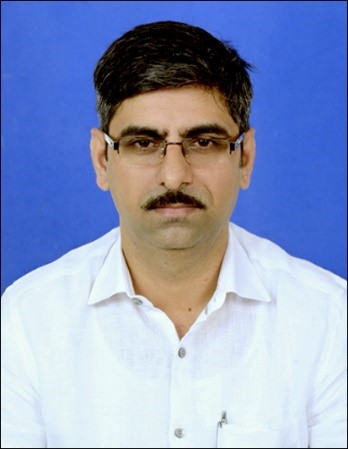
Dr. Manohar Singh, Senior Member (Ph.D IIT Delhi, M.Tech. IIT Roorkee) Associate Professor, Electrical Engineering Department, Punjab Engineering College (Deemed to be University) Sector-12: Chandigarh, Earlier Engineering Officer- Central Power Research Institute- Govt. of India.
https://pec.ac.in/ee/faculty/manohar_singh
https://scholar.google.co.in/citations?user=_D4rItEAAAAJ&hl=en
Dr. Manohar Singh earned his B.E. degree in Electrical Engineering from the Government College of Engineering & Technology (GCET) in Jammu, India, in 2003. He then obtained an M.Tech. in Electrical Engineering (Power Systems) from the Indian Institute of Technology (IIT) Roorkee in 2010, followed by a Ph.D. in Electrical Engineering from IIT Delhi in 2015. Currently, he serves as an Associate Professor in the Department of Electrical Engineering at Punjab Engineering College (Deemed University), one of the oldest engineering institutes in India, established in 1921.
Prior to this role, Dr. Singh worked as a Senior Engineering Officer at the Central Power Research Institute (CPRI) in Bangalore, a Ministry of Power organization under the Government of India. During his tenure at CPRI, he was deeply involved in applied research and consultancy within the power sector. Notably, he served as the nodal officer for conducting electrical studies for the online testing of power transformers at the National High Power Testing Laboratory, a unique international facility established in India.
Dr. Singh's research interests encompass power system protection, simulation and modelling of power systems, micro grids, and the operation and control of grids with significant renewable energy integration. He has published approximately 50 research papers in international and national journals and conferences. Additionally, he has executed sponsored research projects and provided expert services to various power utilities, including conducting tutorials on Power Systems Protection in industrial settings.
He is senior member of IEEE. Dr. Singh was honoured with the Best Teacher Award for the 2023-24 academic year in recognition of his outstanding performance in consulting services. His research on "Cluster-Based Protection Coordination Using a New Voltage Current Time Inverse Relay" was recognized as one of the best research contributions during the PES General Meeting in 2018, held in Portland, USA.
Please use the following Google Form Link to register in the poster competition and upload the poster abstract.
Student Poster Competition Guidelines
Participate in the EPECS'24 Student Poster Competition to:
- Find out the latest developments in electric power and energy conversion systems
- Set yourself apart and give yourself a competitive advantage (teamwork, networking, boosting your resume)
- Receive a Certificate of Achievement
- Earn a chance to win a cash prize
What is EPECS'24 Student Poster Competition?
- The EPECS'24 Student Poster Competition is open to engineering students (undergraduate and graduate) to showcase their design projects and/or research work in the field of electric power and energy conversion systems.
- A poster session will be scheduled to run in parallel with the EPECS'24 conference program.
- Each poster will be judged by a panel of typically three or four professional members from academia and industry.
- Students must be present at their posters during the allocated session on Tuesday, November 12, 2024 to talk to judges in order to qualify for the poster competition.
- Awards for the top posters in each category (undergraduate and graduate) will be announced at the Gala Dinner on Wednesday, November 13, 2024.
Entry Requirements
The competition is open globally to currently enrolled undergraduate and graduate students in electrical engineering.
- Teams should consist of two to five students.
- Free conference registration for students with accepted posters.
- To enter the competition, teams must submit the following:
- completed registration form
- a one-page abstract
- For accepted posters, teams should submit:
- A0 format poster
- one- to two-minute demonstration video (if available)
Key Dates
Registration and abstract submission October 22, 2024
Notification of acceptance October 29, 2024
Final poster submission November 5, 2024
Detailed Information
- Please ensure that your advisor(s)/co-authors all sign off on your abstract before submission. All submitted abstracts become public information, so it is your responsibility to ensure that there are no confidentiality issues.
- Students must first submit a one-page abstract. Once it is accepted, they can prepare and submit the poster.
- Please read the detailed instructions before submitting your final poster.
Sponsors



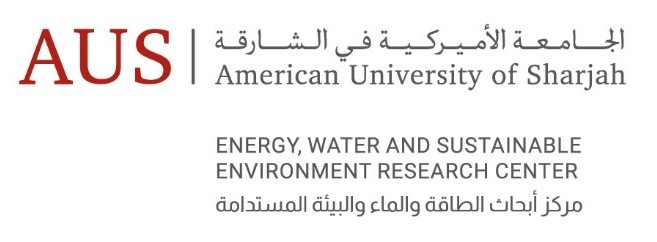

Centro Sharjah • 4 Star Business Hotel in Sharjah, UAE (rotana.com)
Reservation-Centro Sharjah [email protected]
Sales - Centro Sharjah [email protected]
Booking Code: - ROAUSSE ( AUS-International Conference on EPECS'24 from the 11th until 15th November 2024)
It is the participants' responsibility to acquire a travel visa to enter the UAE. Should one be necessary, we can support you by supplying an invitation letter upon acceptance of your conference paper and upon conference registration. However, we are not visa experts, nor can we expedite the visa process. Thus, we urge you to register early and arrange for your visa in advance. The processing time varies depending on the country and individual circumstances.
Kindly refer to the official UAE government website for information on visit visas, click here.
EPECS 2024 will be held at American University of Sharjah (AUS). AUS has a unique multifaceted campus with a distinctive Islamic architecture and is conveniently located close to airports and tourist attractions. Firmly grounded in principles of meritocracy and with a strong reputation for academic excellence, AUS has come to represent the very best in teaching and research, accredited internationally and recognized by employers the world over for creating graduates equipped with the knowledge, skills and drive to lead.
AUS values learners not driven only by academic success, but by those that embrace our dynamic campus life and embody our ideals of openness, tolerance and respect. This combination of academic excellence and community spirit ensures AUS is filled with world-class faculty and students who are poised to become the leaders of tomorrow. We offer 32 majors and 46 minors at the undergraduate level, 17 master's degrees programs and five PhD programs.
For directions to the AUS campus, click here.
Sharjah is one of seven emirates in the United Arab Emirates (UAE). The UAE is renowned for its breathtaking landmarks, vibrant shopping malls and traditional souks, pristine beaches, thrilling waterparks and world-class luxury hotels.
Click here for major tourist attractions in the UAE.
For more information on Sharjah, click here.
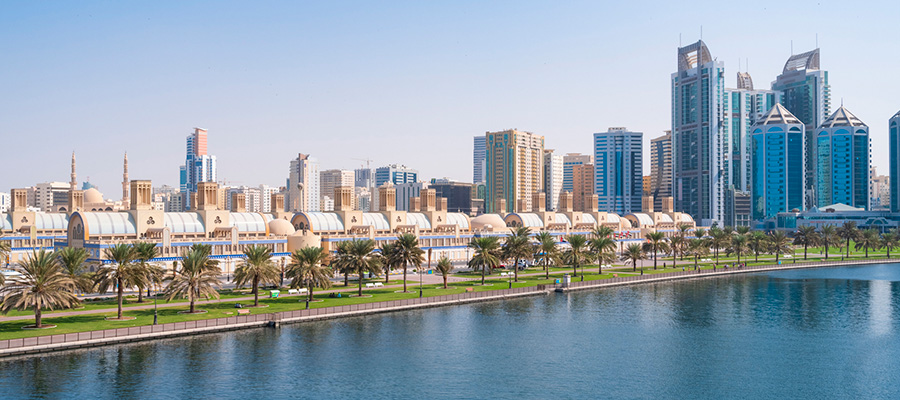
Conference Co-Chairs
Dr. Rached Dhaouadi, AUS, UAE
[email protected]
Dr. Ahmed Osman, AUS, UAE
[email protected]
Conference Secretariat
[email protected]
Tel +971 6 515 2474
Payment Error
Thank You for Registering

